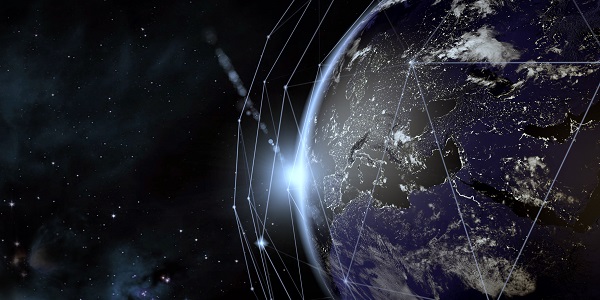LUXEMBOURG, Sept. 26, 2022 — A consortium of 20 European companies led by Luxembourg-based satellite telecommunications network provider SES SA, with support from the European Space Agency (ESA) and the European Commission, will design, develop, launch, and operate a satellite system that will enable secure quantum key distribution (QKD) based on free space optical communication technologies. The EAGLE-1 satellite-based system will be capable of in-orbit validation and seeks to usher in next-generation cybersecurity across Europe. The EAGLE-1 satellite is due to launch in 2024 and will then complete three years of in-orbit mission supported by the European Commission.
For the project, SES will build the space-based QKD system, developing and operating the dedicated low-Earth-orbit (LEO) satellite. The satellite is to be supported by an operations center in Luxembourg.

SES is leading a consortium of 20 European companies that, with the help of the European Space Agency and the European Commission, will help develop satellite-based quantum key distribution. Courtesy of SES.
Using the EAGLE-1 system, ESA and the European Union (EU) member states will achieve the first step to demonstrate and validate QKD technologies from LEO to the ground, according to SES. The EAGLE-1 project will provide mission data for next-generation quantum communication infrastructures (QCIs).
This data, according to SES, will contribute, for example, to EU plans to deploy a sovereign, autonomous, cross-border quantum secure communications networks.
During the EAGLE-1's operational phase, the satellite will allow EU governments and institutions, as well as critical business sectors, early access to long-distance QKD to pave the way toward an EU constellation enabling ultrasecure data transmissions.
To implement the ultrasecure cryptographic key exchange system of EAGLE-1, the consortium will develop the QKD payload, terrestrial optical station, scalable quantum operational networks, and key management system to interface with national QCIs.